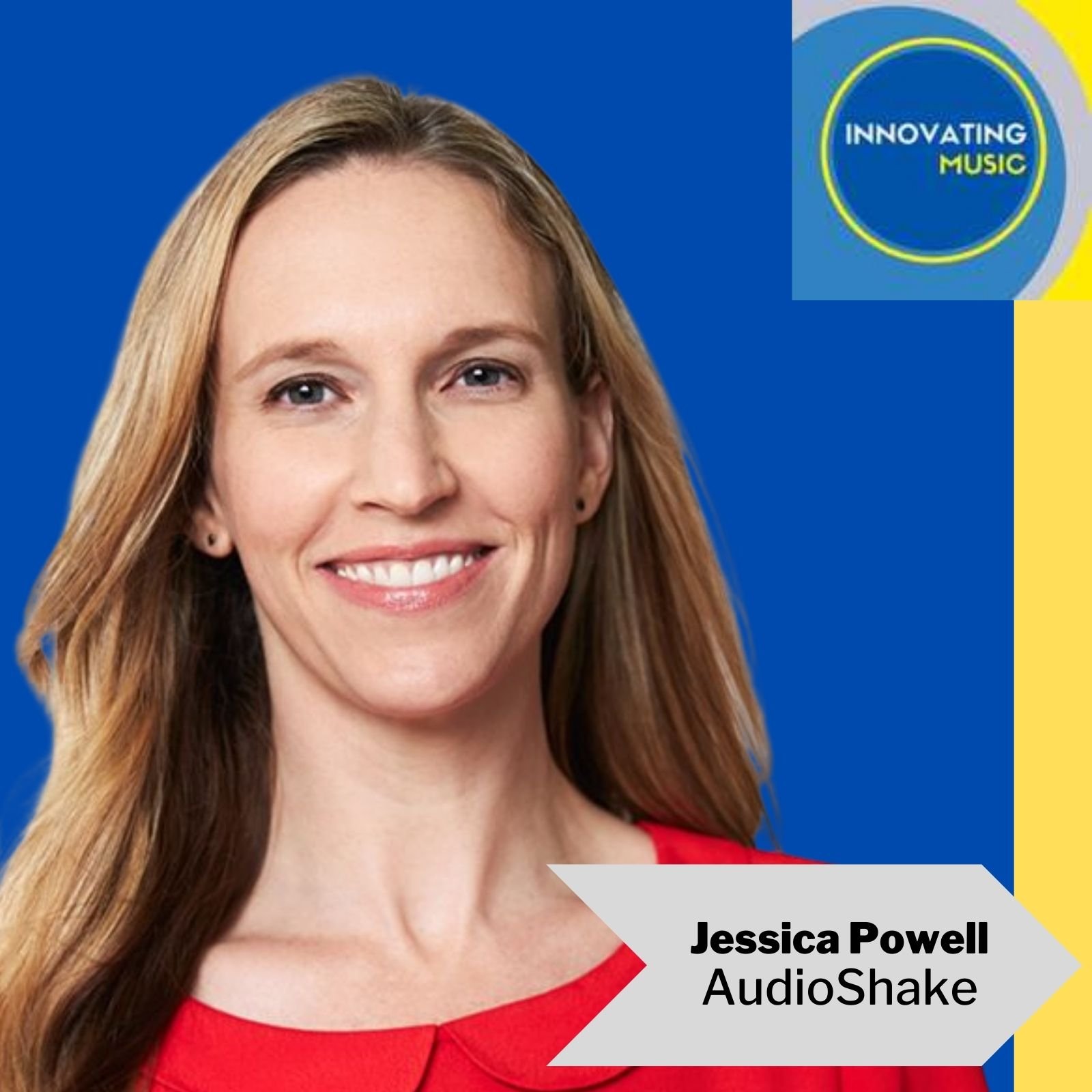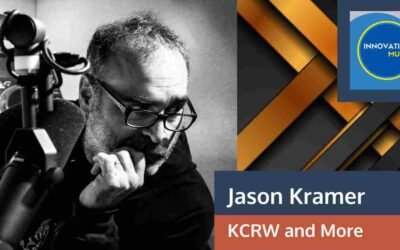Jessica Powell, co-founder and CEO of AudioShake, leads the conversation on AI music stem separation—a technology that splits audio into individual components for remixing, restoration, and licensing. In this episode, Powell reveals how AudioShake’s AI is helping artists, labels, and content creators unlock new creative and commercial opportunities.
Reviving Lost Recordings with AI
Powell explains how AudioShake’s technology recovers stems from old or degraded recordings, including mono tracks and lost master tapes. From Beatles-era analog reels to modern tracks with missing files, AI stem separation brings recordings back to life for spatial audio, film licensing, and archival releases.
Empowering Creators and Fans
Beyond industry use, AI stems open doors for fans and musicians to engage with music in new ways. Powell shares the Green Day example, where AudioShake removed guitar parts so fans could play along—transforming passive listening into active collaboration.
A Nonlinear Journey to Music Tech Leadership
Powell’s path to music technology included journalism, global travel, copyright administration, and a communications role at Google. She reflects on how diverse skills—language fluency, problem-solving, adaptability—helped her launch AudioShake and navigate a fast-changing industry.
Listen to learn how AI music tools are reshaping production workflows, artist engagement, and the preservation of music history.
Highlights
- “AudioShake uses AI to split audio into its different components.”
- “Your favorite remix was probably using stems.”
- “We’ve worked on some of the biggest albums of the past year where the stems were missing.”
- “That was the kind of thing I would have loved as a teenager.”
Guest: Jessica Powell, CEO and Co-Founder, AudioShake
Jessica Powell is the CEO and co-founder of AudioShake, which uses AI to separate songs into instrumentals and stems so that they can be opened up for new opportunities in sync licensing, remixing, and emerging immersive, education, and social media formats. The company won Sony’s Demixing Challenge, and was called the “cleanest stem separation tech” by DJ Mag.Powell spent over a decade at Google, where she sat on the company’s management team, reporting into the CEO, and ran the company’s global communications organization. She began her career at CISAC, the International Society of Authors and Composers, in Paris. She is also an author and essayist, whose work has have been published in the New York Times, TIME, WIRED, and elsewhere.
Mentioned Links:
- Twitter: https://www.twitter.com/themoku and https://twitter.com/AudioshakeAI
- LinkedIn: https://www.linkedin.com/company/audioshake/ and
- Website: https://audioshake.ai and https://indie.audioshake.ai
- Music Tectonics’ Swimming with Narwhals Music Tech Startup Pitch Competition: https://www.musictectonics.com/pitchcompetition
- Billy Mann: https://www.billymann.com/
- Mary Megan Peer and peermusic: https://www.musicbusinessworldwide.com/mary-megan-peer-named-as-new-chief-executive-officer-of-peermusic-as-ralph-peer-ii-shifts-to-executive-chair/
- Donovan’s Season of the Witch: https://youtu.be/GU35oCHGhJ0
- CISAC (International Confederation of the Societies of Authors and Composers): https://www.cisac.org/
- Her book, The Big Disruption: A Totally Fictional but Essentially True Silicon Valley Story – https://www.amazon.com/Big-Disruption-Jessica-Powell-ebook/dp/B07PK5S8D9/
- Canadian Music podcast interview: https://www.canadianmusicianpodcast.com/episodes/audioshake-jessica-powell
- Webby Awards info: https://www.webbyawards.com/news/jessica-powell-co-founder-audioshake/
- Magnetic Magazine interview: https://www.magneticmag.com/2022/02/industry-insider-interview-audioshake-co-founder-jessica-powell/
- Hypebot article: https://www.hypebot.com/hypebot/2022/08/how-to-make-money-from-song-stems-with-audioshakes-jessica-powell.html
- NYU articles (as author): https://www.nytimes.com/column/jessica-powell









